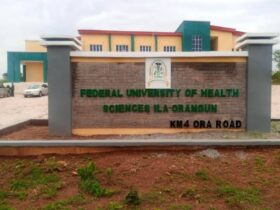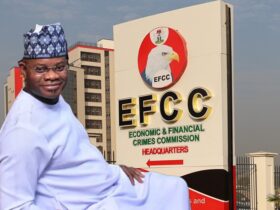…Asks NBA to monitor turn around of refineries
Rights activist and Senior Advocate of Nigeria, Mr Femi Falana, on Monday stated that it was wrong of the federal government through the Central Bank of Nigeria (CBN), to allow market forces and the International Monetary Fund (IMF) as well as the World Bank to determine Nigeria’s foreign exchange rate.
Mixed reactions have continued to trace President Bola Tinubu’s decision to float the nation’s currency, the Naira. While some commended the federal government for the bold decision, others have condemned it, pointing out that the floating of the naira as well as the removal of fuel subsidy has contributed greatly to the harsh economic situation facing Nigerians.
Tinubu had met the dollar around N462, however today, a dollar is being exchanged for over N920, although the government beliefs with time the currency would firm up with the dollar as well as other currencies.
However, speaking at the opening of plenary at the 2023 Annual General Conference of the Nigerian Bar Association (NBA), in Abuja, Falana, told the gathering of nearly 17, 000 lawyers that the fixing of the exchange rate is the exclusive of the CBN.
“Section 16 of the CBN Act gives no room for market forces to fix the exchange rate.
“It is the CBN that shall determine…it is not for the IMF or World Bank or market forces to fix it”, he said.
As part of efforts at turning around the harsh economic situation in the country, Falana, also urged the government to begin trading in naira with countries like the People’s Republic of China.
He argued that if the about $22 billion import from China is transacted in Naira, the high demand for dollar which put pressure on Nigeria’s economy would drop, if not stop.
Besides the federal government, the human activist called on the umbrella body of lawyers in the country to focus on certain aspects of the Tinubu administration to ensure that the government and by extension the country gets it right this time around.
Specifically, Falana charged the various branches of the NBA where the nation’s refineries are located, to begin to “monitor” development at the refineries, adding that government has committed $1.4 billion to the projects.
In a related development, he advocated for the publishing of the details of the monies shared among the federal, state and local governments on a monthly basis, recalling that when the amount shared are made public it would be very easy for citizens to follow the money and also ask state executives relevant questions.
The focus of the plenary is titled: Getting the Economy Right: Decoding Nigeria’s Strategy for Growth, Diversification, Inclusivity and Sustainability.
Various speakers at the session while observing that the oil sector accounts for 95% of the country’s earnings and 87% of its budgetary revenues, noted that if the country must get it right, then there must be a shift to other sectors of the economy.
While they acknowledged constraints as well as bottlenecks such as inadequate infrastructure, tariff barriers to trade, lack of confidence in currency valuation and limited foreign exchange capacity, the session stressed the need for the involvement of professionals including lawyers in making the necessary shift from a mono-oil dominated to other sectors like agriculture, manufacturing and trade-able services.
Besides, the session expressed belief that attracting investments from Nigerians in diaspora in different sectors of the economy is also crucial to the economy getting the economy right.









Leave a Reply